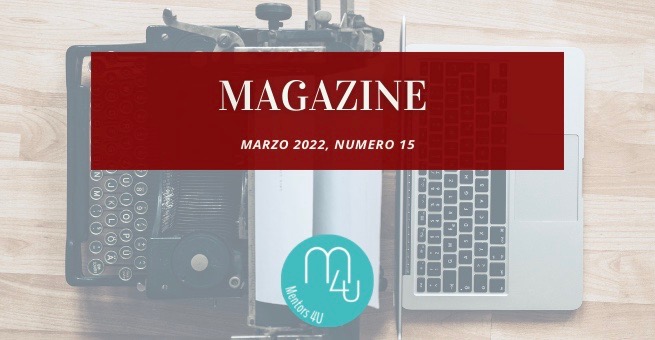Her main goal is to promote spaces for female empowerment and promote the closing of gender inequality gaps in the Colombian Pacific region.
Helena, you are the first Colombian in history to be recognized as a Ford Global Fellow: what does it mean for you and how has this achievement influenced your vocation?
Pleased and proud of belonging to a minority group, I am conscious of the different difficulties that concern us, being aware that betterment depends on global and social transformation. Being born into inequality, violence and social issues such as abandonment of the state, discrimination and innumerable unmet needs. Life provides several opportunities for me to decide whether to transform my reality or sink into it. This is the story of my life and the reality of most black people in Colombia. Being the first Colombian in history to be recognized as a Ford Global Fellow means three main things.
First, the opportunity to transform my personal and my family life. Secondly, because I became a referent for many young blacks who dream for a better future and more opportunity to transform their realities.
Finally, is the opportunity to give voice to those that historically have not been heard or allowed to speak and represent my community in a global space where we could work to create solutions to our problems.
Tell us a bit more about yourself: your background, your story, your dreams. Looking back on your life, what factors made you realize that you wanted to (co)found the Innovation Girls program? Can you explain, in just a few words, what the purpose of the program is?
“Girls and women in Colombia’s Pacific region must be empowered to take on leadership roles and have access to education.”
I'm Cruz Helena Valencia Moreno Passionate about public service, and female and community empowerment. My life experience has become my main motivation to achieve my dreams, I come from a humble and struggling family; where, despite the situations I have been given values and principles that have been strengths in my life. The scenario that we, the youth of Chocó have to face, has not been generous in terms of opportunities to cultivate
our dreams.
That motivated me and I co-founded and coordinated the Innovation Girls program, a non-profit program from the Escuela
de Robotica del Chocó, that seeks at empowering afro-descendants and indigenous women from Chocó, through Science, Technology and Innovation constitutes one of the most impactful contributions that I have made to my territory. The project ́s main purpose is to ensure that the participants enhance their leadership skills and overcome local problems through STEM (Science, Technology, Engineering and Mathematics), studying careers related to technology and developing technology based abilities in the region for free, through which they can access more opportunities in the future. During the development of the program (5 cohorts) we have managed to directly and indirectly impact more than 300 women in the region (Pacific of Colombian); increasing the number of recipients, and also, multiplying the number of beneficiaries and turning them into agents of change for their communities.
On the other hand, I am co-founder & CEO of Quibdó Leadership Academy and operations ambassador for Mentors4u Colombia. I have participated as a leader in some social programs, like Martin Luther King Fellow, SUSI Fellow (studying at US Institute for Afro-descendant and Indigenous Women's Leaders in University of Arizona), Origin Fellow, Foundation mi sangre Fellow, Dale Pacifico 2020 Leader, fellow Youth Leader Access Program Peru, One Young World Ambassador 2021, Fellow Lisa (Leadership accelerator) from USAID, Ford Global fellow and Afrodescendant of the year (young category) Awarded by El Espectador Newspaper and the Color Foundation of Colombia. My main goal is to promote spaces for female empowerment and promote the closing of gender inequality gaps in the Colombian Pacific region.
I believe that communities must be empowered to create solutions for their own issues, which requires giving voice to those that historically have not been heard or allowed to speak. Through collaborative work, we can realize a diverse and inclusive society that finally puts marginalized people in leadership roles, especially women.
Focusing now on the Country in which you grew up: Colombia. How has the job market there evolved over the past 30 years? Do you feel that it’s easier or more difficult for new generations to find a job? Life in the shoes of a student before and after Mentors4u arrived in Colombia: what has the mentoring program brought to the table?
As young leaders, we have many goal and ambitions in 2017 I had the opportunity to be part of the second cohort of Mentors4u Colombia, that experience changed completely mi life because the guide me to start my professional career and support me to develop professional and leaderships skills that was crucial to start create some of mi social programs. Also gave me the opportunity to mentor one person who was professional with many experiences in my professional objectives, that mentor became my friends, referent and support to achieve my professional dreams. After my experience as a Mentee, I was dedicated to create more opportunity to the black youth in the pacific of Colombia and implement the mentorship like a powerful tool to facilitate the accompaniment process to create personal and professional opportunity for them to illustrate the process that I leading in Quibdo Leadership Academy.
Brain drain and brain gain: many talented people decide, every year, to study or work outside of Colombia. How much does this lead to a positive return for the Country, also considering the possibility of them returning home? What are usually the consequences of this “human capital flight”? Focusing now on the Country in which you grew up: Colombia. How has the job market there evolved over the past 30 years? Do you feel that it’s easier or more difficult for new generations to find a job?
According to Universidad de los Andes, from Colombia; in the Colombian-Pacific area, out of a thousand students who finish their college studies, nine hundred and thirty-three do not access higher education. Studying a professional career in Colombia at the present time, appears as a privileged chance, which has limited access, since its high economic costs and centralization prevent the entry and permanence of a large part of the population, especially, for ethnic groups such as Afro-descendants and indigenous people. That is the same reality that many young professionals face to start their professional careers and access to good jobs and they try to work outside of Colombia. On the other hand, Over the years, Colombia has been affected by socioeconomic and structural difficulties which drives a lot of professionals to try to find more opportunities outside of the country.
To conclude, I believe that the Education plays a relevant role in community advancement, likewise, most of the social difficulties originate and can be solved through it. A large part of the population from Colombia encloses the lack of access to higher education as their biggest barrier, and this factor influences other issues such as, unemployment, violence and economic gaps. I consider that ensuring access to diverse and inclusive quality-of-education increases growth professional opportunities for the youth, especially for the women. Additionally, serves to promote community development.



